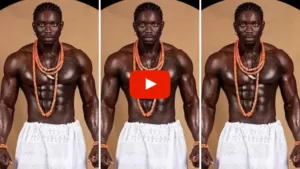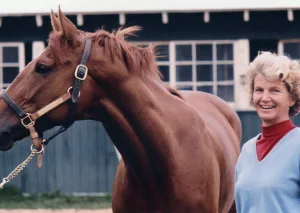APC National Chairman, Governors Storm Delta State to Welcome Governor Oborevwori, PDP Defectors to APC

Asaba, Delta State – In a significant political realignment, the All Progressives Congress (APC) National Chairman, Dr. Abdullahi Umar Ganduje, alongside a powerful delegation of APC governors, arrived in Delta State on April 27, 2025, to formally welcome Delta State Governor, Rt. Hon. Sheriff Oborevwori, and other prominent Peoples Democratic Party (PDP) leaders defecting to the APC. The high-profile event, which signals the end of the PDP’s 26-year dominance in Delta State, has sparked widespread reactions and set the stage for a transformative political landscape in the South-South region.
A Grand Reception in Asaba
The APC delegation, which included Governors Hope Uzodinma of Imo State, Ahmed Usman Ododo of Kogi State, Monday Okpebholo of Edo State, and Biodun Oyebanji of Ekiti State, was warmly received by Governor Oborevwori at the Government House in Asaba. The visit was a precursor to a grand rally scheduled for April 28, 2025, at the Asaba Township Stadium, where Vice President Kashim Shettima is expected to formally receive the defectors into the APC fold.
Among the notable figures defecting alongside Governor Oborevwori are former Delta State Governor, Senator Ifeanyi Okowa, the state Deputy Governor, Monday Onyeme, the Speaker of the Delta State House of Assembly, Emomotimi Guwor, and over 20 members of the state House of Assembly. Other key PDP figures include the 25 Local Government Area Chairmen, the state PDP Chairman, Chief Solomon Arhavwarien, and members of the State Executive Council. This mass defection, described as unprecedented, effectively collapses the PDP’s structure in Delta State, handing the APC a significant advantage in the oil-rich state.
The Road to Defection
The decision to defect was announced following a marathon six-hour meeting held on April 26, 2025, at the Government House in Asaba. The meeting, attended by Governor Oborevwori, Senator Okowa, and other PDP stakeholders, culminated in a unanimous resolution to join the APC. Sources close to the meeting revealed that the defectors cited the need for greater alignment with the federal government to drive development in Delta State as a primary motivation. The APC’s promise of inclusivity and political empowerment for the state was also a key factor in the decision.
Governor Oborevwori, in a brief statement after receiving the APC delegation, expressed optimism about the move, stating, “This is a new dawn for Delta State. Joining the APC will open up opportunities for our people and ensure that Delta plays a pivotal role in national politics.” Former Governor Okowa echoed similar sentiments, emphasizing that the defection was a strategic move to secure a brighter future for the state.
Internal APC Resistance
While the defection has been hailed as a major coup for the APC, it has not been without controversy. Former Deputy Senate President and prominent Delta APC leader, Senator Ovie Omo-Agege, has voiced concerns over the move. In a statement issued on April 27, 2025, Omo-Agege described the mass defection as a “potential threat to the APC’s unity in Delta State.” He argued that the integration of such a large number of PDP leaders could marginalize longstanding APC members who have worked tirelessly to build the party in the state.
Omo-Agege’s concerns highlight the delicate balancing act the APC leadership must navigate to ensure harmony within the party. Analysts suggest that the national leadership, under Ganduje, will need to address these internal dynamics to prevent factionalism and maintain the party’s momentum in Delta State.
A Political Earthquake in Delta
The defection of Governor Oborevwori and his political allies marks a seismic shift in Delta State’s political landscape. Since the return to democracy in 1999, the PDP has maintained an iron grip on the state, producing all elected governors and dominating the state legislature. The APC’s successful poaching of the state’s top political figures effectively dismantles this dominance, positioning the APC as the new powerhouse in Delta politics.
Political observers note that the defection could have far-reaching implications for the 2027 general elections. With Delta State now under APC control, the party strengthens its foothold in the South-South, a region traditionally dominated by the PDP. The move also enhances the APC’s influence in the oil-producing Niger Delta, a region critical to Nigeria’s economy.
The Rally and Beyond
The April 28, 2025, rally at the Asaba Township Stadium is expected to be a historic event, with thousands of APC supporters and new members in attendance. Vice President Kashim Shettima’s presence underscores the importance of the defection to the APC’s national strategy. The rally will feature speeches from key APC leaders, including Ganduje, Uzodinma, and Oborevwori, who are expected to outline the party’s vision for Delta State.
As the APC celebrates this political victory, attention will now turn to how the party manages the integration of the new members and addresses internal concerns. For Governor Oborevwori and his allies, the defection represents a bold gamble that could redefine their political careers and the future of Delta State.
Conclusion
The arrival of APC National Chairman Abdullahi Ganduje and APC governors in Delta State to welcome Governor Sheriff Oborevwori and PDP defectors signals a new chapter in the state’s political history. The mass defection, described as a “political earthquake,” has reshaped the power dynamics in Delta and bolstered the APC’s influence in the South-South. As the party prepares for the formal reception of the defectors, all eyes will be on how the APC navigates the challenges and opportunities presented by this historic moment.







